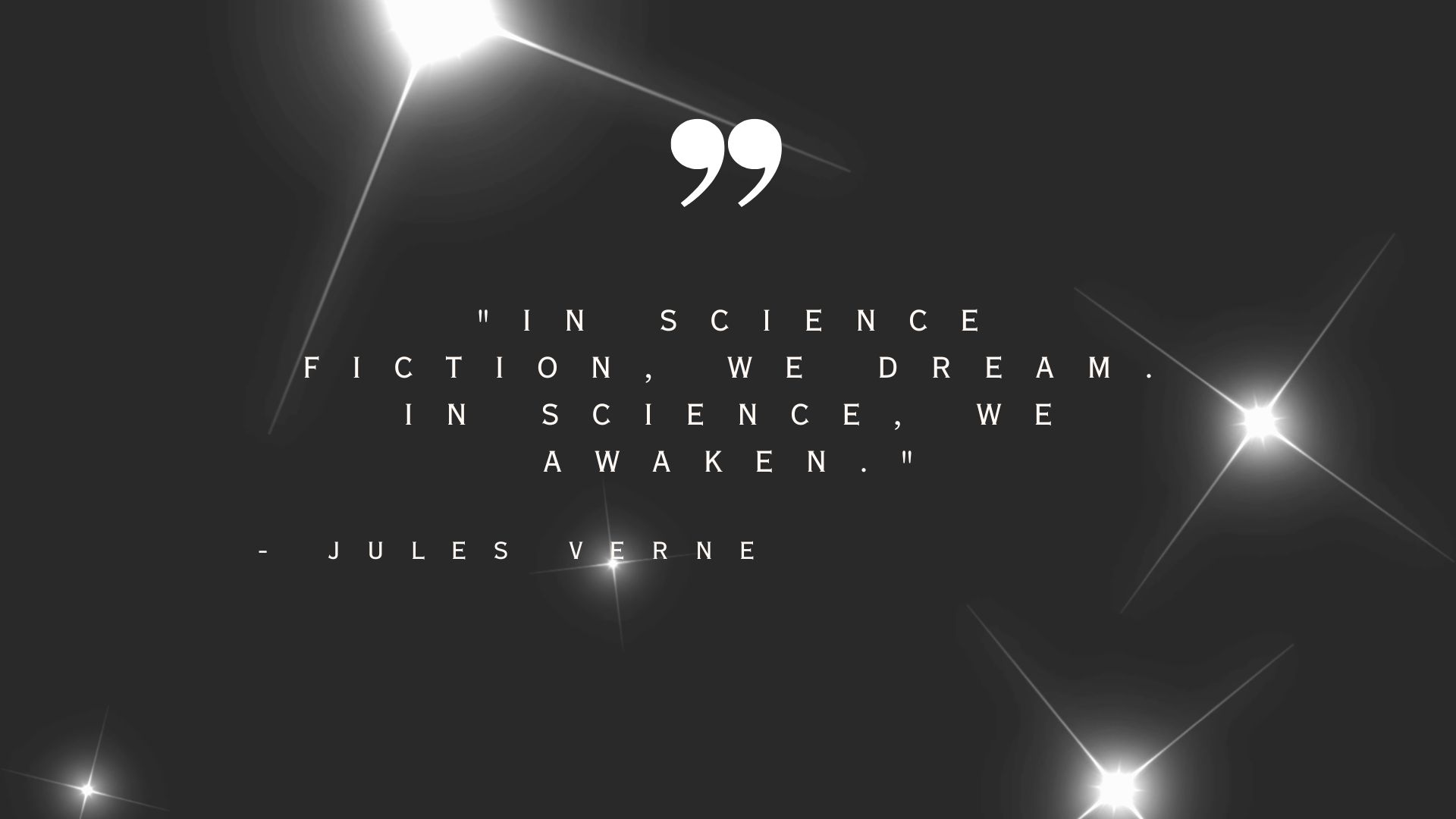“In science fiction, we dream. In science, we awaken.”
– Jules Verne
The quote “In science fiction, we dream. In science, we awaken.” attributed to the visionary author Jules Verne, encapsulates the essence of the relationship between the realms of imagination and empirical investigation. It highlights the distinction between the creative and speculative world of science fiction, where we let our imaginations run wild, and the concrete, evidence-based domain of science, where we ground our understanding in empirical truths. This explanation will delve into the subheadings to better comprehend the profound meaning behind this quote.
- The Realm of Science Fiction: In the first part of the quote, “In science fiction, we dream,” Jules Verne alludes to the genre of literature and storytelling that thrives on imagination and speculation. Science fiction allows us to venture into uncharted territories, envisage futuristic technologies, explore distant galaxies, and encounter fantastical beings. It serves as a canvas for creative minds to envision possibilities beyond the limitations of our current knowledge and understanding. This realm of boundless imagination ignites the human spirit and fosters a sense of wonder about the universe.
- The Power of Dreaming: Dreaming in science fiction is not just an exercise in escapism; it is a powerful tool that drives scientific progress. Many groundbreaking discoveries and inventions were first conceived in the minds of science fiction authors before becoming realities. Their visionary ideas have inspired generations of scientists, engineers, and inventors to pursue their dreams and turn them into tangible innovations. Thus, the act of dreaming in science fiction sparks the seeds of curiosity and innovation in the minds of individuals, propelling humanity towards new frontiers.
- Science: The Awakening of Curiosity and Inquiry: The second part of the quote, “In science, we awaken,” draws attention to the empirical, evidence-based discipline of science. Unlike the speculative nature of science fiction, science is firmly anchored in reality and relies on systematic observation, experimentation, and peer review to validate its claims. It serves as the lens through which we decipher the natural world, unravel its mysteries, and uncover its underlying laws. Science awakens our innate curiosity and fuels the desire to comprehend the complexities of the universe through rational investigation.
- Bridging Imagination and Reality: While science fiction and science may seem like two distinct worlds, they are interconnected in profound ways. The dreams and ideas presented in science fiction often serve as the inspiration and starting point for scientific inquiry. Scientists often ponder questions raised by science fiction, leading to serious investigations that may eventually result in groundbreaking discoveries. In this way, the boundaries between imagination and reality become fluid, and science becomes a means to bring the wildest dreams of science fiction to life.
Conclusion:
Jules Verne’s quote encapsulates the dynamic interplay between imagination and empirical exploration. Science fiction ignites our dreams and stretches the limits of what we think is possible, while science grounds us in the realm of facts and evidence. By acknowledging and embracing both aspects, we can foster a world where creative visions fuel scientific progress, and scientific discoveries feed back into the realm of imagination, perpetuating a cycle of wonder, curiosity, and innovation. This synergy between the realms of dreaming and awakening helps humanity venture towards a future that was once only conceived in the realms of science fiction.




